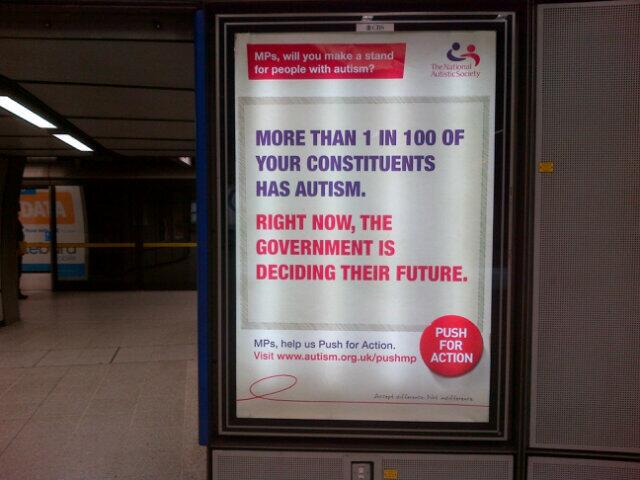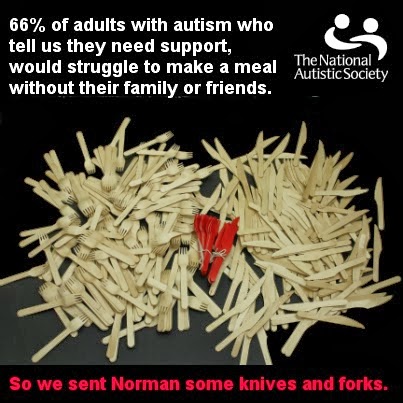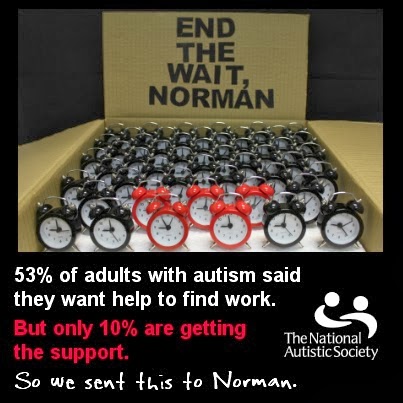 Jonny said:
Jonny said:"It took well over a year to get diagnosed, partly because only one place in the southeast had the facilities to do it. But I am glad I persevered. It means that my GP is aware of my condition. It meant I was able to get cognitive behavioural therapy to cope with the challenges I face every day. It has enabled me to understand who I am. But more than anything, diagnosis was a massive relief."
He also talked about the Push for Action campaign and his hopes for 'Think Autism', the new Government strategy:
"Last year the National Autistic Society started a campaign, Push for Action, to improve support for adults with autism. In October, I joined other campaigners in delivering a petition to 10 Downing Street demanding more action from the government, including money for new services, better training for staff such as GPs and care assessors, and more to be done to raise public awareness of autism.
Things are slowly getting better, especially with regard to awareness, but solid support is still lacking. I hope that the government's revised autism strategy, which will be published today – World Autism Awareness Day – will tackle this and actually improve the lives of adults with autistic conditions as well as those of their families."
Read the full article here.






